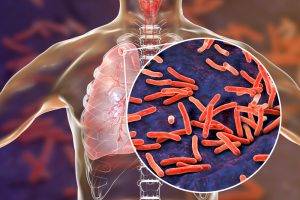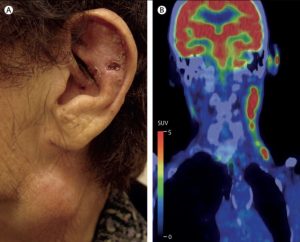Worldwide, 10 million people are infected with TB each year and 1.5 million would die from it.
Tuberculosis (TB) is an infectious disease caused by the bacteria Mycobacterium tuberculosis and most often affects the lungs. TB is spread through the air when people with lung TB cough, sneeze or spit. WHO has estimated that more than 25% of the world population is infected by TB bacteria, but only 5-15% of these will show symptoms. TB in Asia is a major public health problem, with the cause rate being 33 times higher for Asian persons than for non-Hispanic White persons.
Watch our video with Dr Loh Jiashen, Infectious Disease Specialist, on Tuberculosis
Most people are aware that TB in the lungs causes major symptoms including chronic cough with blood or mucus, shortness of breath, fever, weight loss and night sweats etc. However, it’s not just our lungs that could be affected. This article will bring you other manifestations of Tuberculosis.

Tuberculous lymphadenitis
Tuberculous lymphadenitis is the result of lymph nodal infection by tuberculous mycobacteria. It is the most common infection of TB outside of the lungs. The most classic symptom is swollen lymph nodes in cervical, inguinal and axillary lymph nodes. Constitutional symptoms like fever, lethargy and night sweats are commonly presented as well.
To diagnose TB lymphadenitis, a biopsy may be required from the swollen lymph. Treatment is consistent with lung TB but may require a longer course. Usually, people with TB lymphadenitis will have symptoms deteriorate before making recovery.

Miliary Tuberculosis
Miliary TB is a form of TB with multiorgan involvement that manifests with granulomatous lesions (resembling millets) as a result of vascular dissemination of the bacteria from a pulmonary or extrapulmonary source. It constitutes around 20% of extrapulmonary TB cases. Commonly affected organs include the spleen, liver, lymph nodes, adrenals, vertebrae, joints and long bones.
Clinically, due to the nature of multiple organ involvement, patients usually show non-specific symptoms. Multiple tests including microbiology culture for sputum, full blood examination, tuberculosis-specific blood test, and imaging should be done to confirm the diagnosis.
Tuberculous meningitis
Tuberculous meningitis is a form of meningitis caused by Mycobacterium tuberculosis. It is commonly presented in immunocompromised patients with the gradual manifestation of intermittent fever. Typical symptoms include fever, headache, neck stiffness, and altered mental state. CSF fluid needs to be drawn from the patient’s lower back to confirm the diagnosis. On top of the TB treatment, patients usually receive adjunctive glucocorticoid therapy with dexamethasone or prednisolone tapered over 6-8 weeks.
Pericardial Tuberculosis
After TB bacteria enter the patient’s body, they might spread in blood circulation and cause pericarditis – the infection of the heart lining. Clinical features include chest pain, cough and shortness of breath, along with other TB symptoms.
Adrenal Tuberculosis
There are two adrenal glands in our body, and both stays on top of our kidneys. It is an important site for glucocorticoid, aldosterone and androgen secretion. Glucocorticoid regulates our immunity, blood sugar and fat homeostasis; aldosterone regulates our blood salt and water volume; androgen is one of the most important sex hormones. Adrenal glands infected with TB would usually shrink in size and stop their secretory function. Common symptoms include chronic fatigue, muscle weakness, weight loss, loss of appetite, abdominal discomfort, excessive urination etc.
Conclusion
So, to answer the question in the title, no! Tuberculosis is not just a lung disease. It has a range of effects on several of our body’s major organs and a long course of treatment is almost always required. Consult your doctor if you are travelling to endemic regions and isolate immediately if you suspect you have TB.












